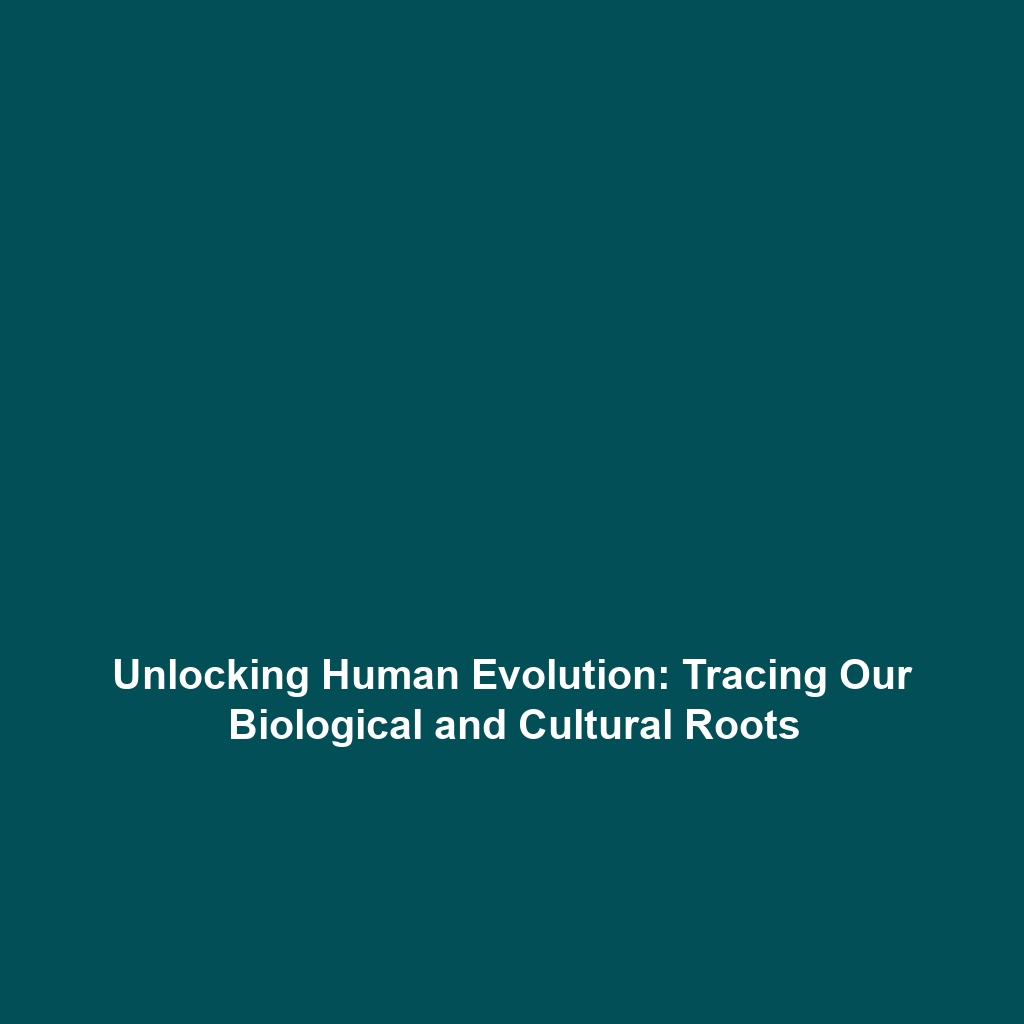Understanding Human Evolution: Importance and Implications
Category: Human Evolution
Topic: Importance: Understanding human evolution helps us trace the origins of modern humans and their biological and cultural development.
Introduction
Understanding human evolution is crucial for tracing the origins of modern humans and their biological and cultural development. This area of study illuminates how humans have adapted to various environments and how cultural practices have evolved over time. By exploring human evolution, researchers can gain insights into genetic diversity, behavioral patterns, and the development of complex societies. Recognizing the importance of this knowledge can foster a deeper appreciation for human history and the interconnectedness of various human communities. Through examining key concepts in human evolution, we can articulate the significance of our origins and their impact on contemporary life.
Key Concepts
This section outlines several major concepts related to the importance of understanding human evolution:
1. Evolutionary Theory
At the core of human evolution is the theory of evolution, which postulates that all species, including humans, share common ancestors. The mechanisms driving evolution include natural selection, genetic drift, and gene flow.
2. Fossil Record
The fossil record provides essential evidence for understanding the evolution of modern humans, revealing physical changes in our ancestors and highlighting significant milestones in our development.
3. Cultural Evolution
Cultural evolution examines how human societies and their practices change over time, influencing behaviors, social structures, and technological advancements.
Applications and Real-World Uses
Understanding human evolution has numerous real-world applications within the field of Human Evolution:
- Medical Research: Insights from human evolution can inform medical research by enhancing our understanding of genetic predispositions and diseases.
- Anthropology: This knowledge aids anthropologists in better comprehending cultural practices and their historical context.
- Conservation Efforts: Understanding evolutionary processes can help in wildlife conservation strategies and biodiversity preservation.
Current Challenges
Despite its importance, studying human evolution presents several challenges:
- Data Limitations: Incomplete fossil records hinder comprehensive understanding.
- Scientific Controversies: Ongoing debates among scientists can complicate consensus on evolutionary theory.
- Public Misconceptions: Misinformation and misunderstandings surrounding evolution can affect public perception and education.
Future Research and Innovations
The future of human evolution studies is promising, with ongoing research expected to yield valuable discoveries and technological advancements:
- Genomic Approaches: New technologies, such as CRISPR and whole-genome sequencing, offer unprecedented insights into human genetic development.
- Ancient DNA Analysis: Innovations in extracting and analyzing ancient DNA may shed light on evolutionary lineages and migrations.
- Interdisciplinary Studies: Collaborative research integrating genetics, archaeology, and anthropology will broaden our understanding of human evolution.
Conclusion
In conclusion, understanding human evolution is vital for tracing the origins of modern humans and comprehending their biological and cultural development. It informs various fields such as medicine, anthropology, and conservation while presenting challenges that require ongoing research and discussion. To delve deeper into the vast field of human evolution, explore our related articles and resources that further illuminate our shared past and its implications for the future.
